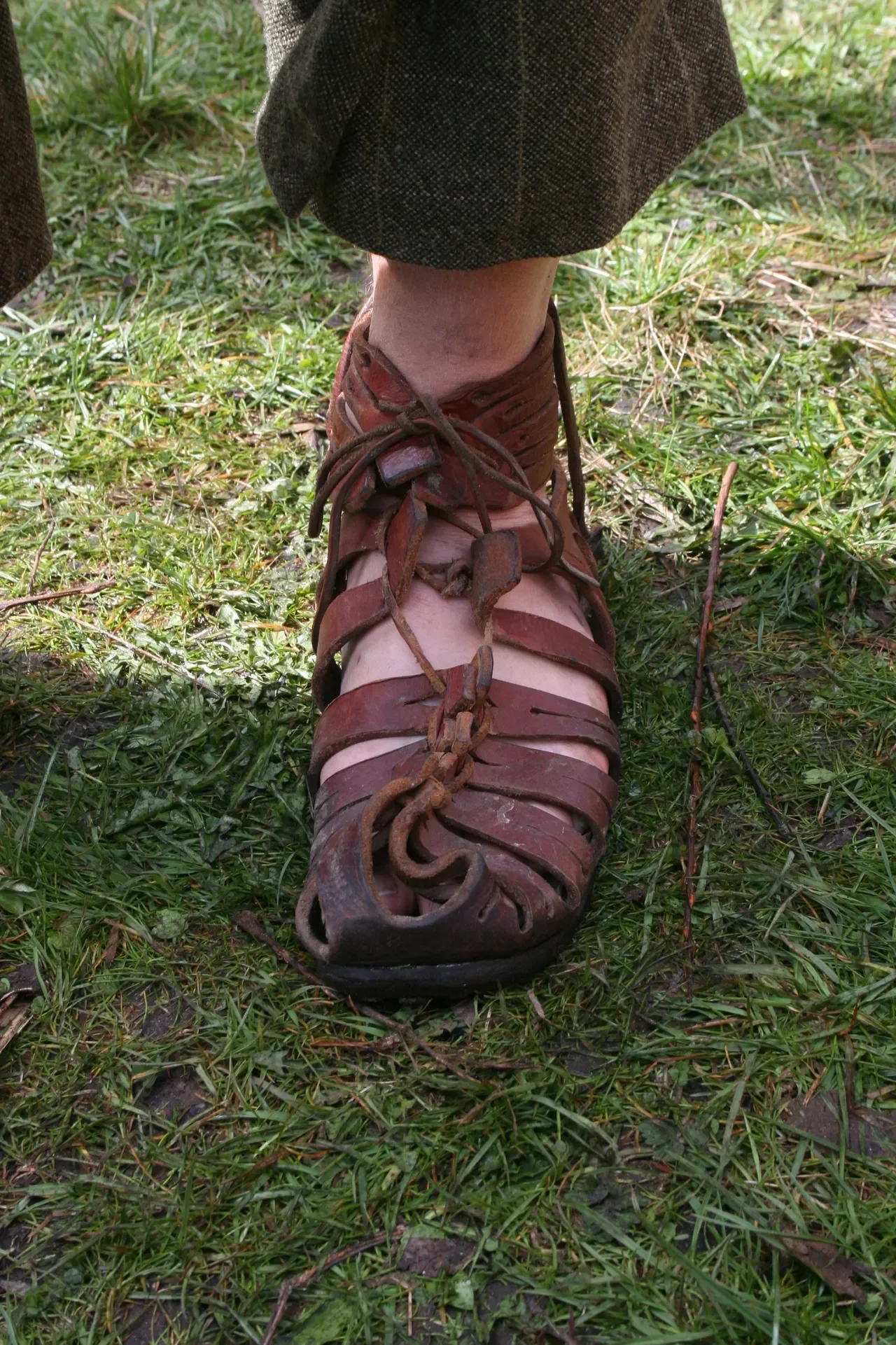The preparation of the gospel of peace

And your feet shod with the preparation of the gospel of peace. Ephesians 6:15
The ESV translates this: “and, as shoes for your feet, having put on the readiness given by the gospel of peace.” Though some have taken this to mean that we are to be prepared to share the gospel at all times, I don’t think that is what the apostle is referring to here, though I do whole-heartedly agree with the sentiment. We should always be ready to share the gospel, ready to give an answer to those who ask about the hope that is in us (cf. 1 Pet. 3:15). But here the apostle doesn’t say that we are to have a readiness to proclaim the gospel, but that we are to have a readiness which is given by the gospel. It’s not a readiness for the gospel, but a readiness of the gospel. To put it another way, the gospel here is not the object of the readiness or preparedness of which the apostle speaks; rather, the gospel is the source of that readiness and preparedness. He is saying that holding to the gospel of peace makes us ready to stand and fight our spiritual foe.
Now the question is, what is the connection here between the boots the warrior puts on and the readiness given by the gospel of peace? It is thought that the apostle here is referring to the caliga, which was a sort of boot worn by the Roman soldier “with soles made of several layers of leather averaging 2 centimeters (3/4 inch) thick, studded with hollow-headed hobnails.”[1] His footwear enabled the Roman soldier to march long distances as well as giving him sure-footedness in the battle. Of course what you wear on your feet depends on what you are doing. The same thing applies here: you wear combat boots into battle, not flip-flops.
Good shoes on your feet give you two things: mobility and sure-footedness. They enable you to move and move quickly; they also enable you to move without falling down. Now I know the overarching command here is to stand (ver. 14), but we shouldn’t take that to mean standing still. Rather, the apostle means something more along the lines of standing tall, or standing firm. It is the opposite of falling down and becoming an easier prey for your enemy. And you are never going to be able to stand without good footwear.
To sum up, I think what the apostle is getting at is this: the readiness here, associated as it is with the combat boot the soldier wore, is a reference to our readiness to stand firm and stand tall. Soldiers won't be prepared to fight if they can’t stay on their feet in the battle. So I think the readiness and preparedness here is specifically tied to one being prepared to stand on their feet. In fact, in the Septuagint, this word (“preparation” or “readiness”) was used with the meaning of an “established place, foundation” (cf. Ezra 2:68; Ps. 89:14).[2] Thus, the NEB translates this verse, “let the shoes on your feet be the gospel of peace, to give you firm footing,” which I think gives the sense of this verse very well.
David, in Psalm 18, speaks about how God helped him in battle, and his words underline the importance of being sure-footed in battle. He writes, “God . . . equipped me with strength and made my way blameless. He made my feet like the feet of a deer and set me secure on the heights. He trains my hands for war, so that my arms can bend a bow of bronze. You have given me the shield of your salvation, and your right hand supported me, and your gentleness made me great. You gave a wide place for my steps under me, and my feet did not slip” (Ps. 18:32-36, ESV). I think that is similar to the idea in our text: when you put on the gospel of peace like boots on your feet, you will be ready to stand so that your feet will not slip.
[1] Harold W. Hoehner, Ephesians: An Exegetical Commentary (Baker, 2002), p. 842.
[2] Ibid.